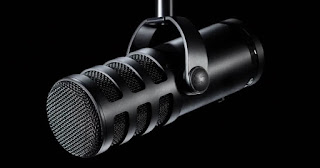There’s a major climate disaster here as a backdrop to a survival (and love) story involving a nameless man and woman, she at the outset, heavily pregnant with their child. Rain is the problem here and London is getting more and more flooded by the hour.
The population is trying to flee to higher ground but the armed forces have been engaged to prevent overcrowding and the resulting drain on limited (and dwindling) resources for everyone to stay alive. As we approach the birthing scene, we are offered plenty of nudity and a fairly explicit, but brief, exposure to more as the sprog comes out.
The early scenes of the film depict a quiet, isolated existence for the pair and this only changes as they try to get away from London and join his parents in rural England (presumably) somewhere. We’re not really very sure where’s where in the film - at one point we seem to end up on a Scottish-looking island, but that’s a long way from London. And there’s no mention at all of any shortage of petrol for cars. Or indeed where they’re getting their cigarettes from which seem to be in plentiful supply!
Anyway, they find the parents’ house but eventually run out of food, so have to go out looking. One thing leads to another, tragedy galore, until the three of them end up in a shelter - but in doing so, get separated. She’s allowed in with the brat, but he, not. She befriends a woman in a similar situation whilst there and they decide to trek off together and away from everyone. Eventually, getting a tip-off (from a character played by Benedict Cumberbatch) about the aforementioned island where there’s a kind of self-supporting, Kibbutz, hippy community.
A lot of the film is about trekking around - sometimes aimlessly, sometimes with a target and purpose - it’s during these scenes where we see the survival part come into play with the child needing feeding and mother scrabbling around to find food for herself. It’s all quite laid-back though and there’s often no real feel of urgency about their plight. Part of the reason for this is that she often stumbles into good fortune on her travels, which is probably a little unrealistic.
And so, there’s great potential to pick holes in the plot here but I think that rather misses the point of the film being an artistic, poignant, beautifully shot, stylised (almost) apocalyptic yarn, which often comes across in near dream-state. Even the scenes which would ordinarily end up as being 'moving' or emotional are presented differently. I think it’s supposed to be removed a bit from reality, expectation of close scrutiny and such critical questioning. More of a go-with-the-flow affair. Like the Kibbutz!
Laying all that aside, the film is totally held together by the fabulous performance of Jodie Comer (The Last Duel, Killing Eve) - she's in pretty much every scene (and we see plenty of her!), ably supported by Joel Fry (Trollied) and a bunch of other Brit names who all perform very well. It's nicely produced and shot with controlled views of the effects needed for the flooding - but more so, the rural countryside backdrop to much of the story. Recommended very much, but take the above into account and don't be expecting something that it's not.





No comments:
Post a Comment